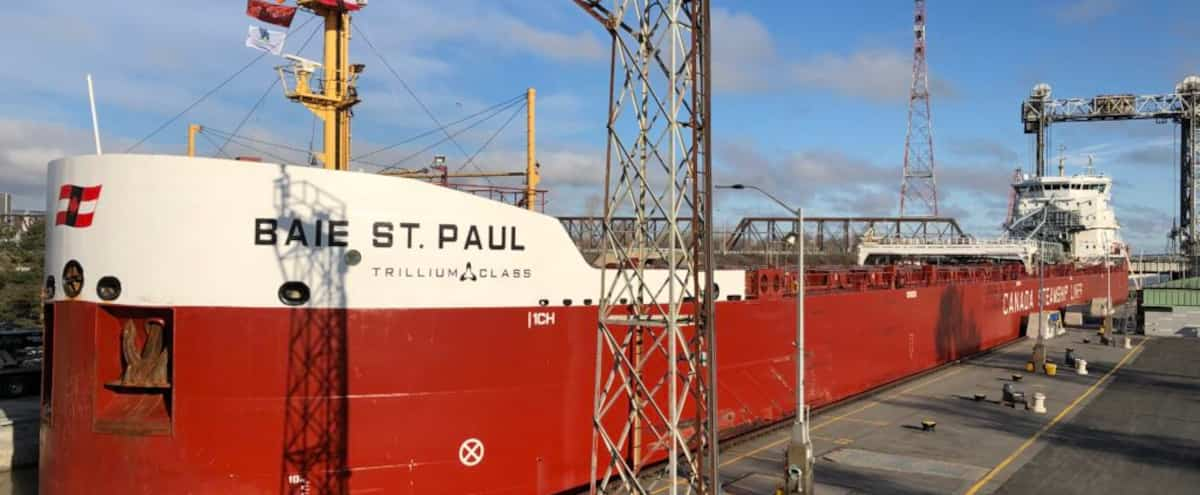“There will be disruptions and delays in certain goods in the manufacturing sector,” fears Marc Cadieux, CEO of the Quebec Trucking Association (ACQ), given the closure of the Saint Lawrence Seaway due to the strike triggered on Sunday.
• Also read – Sea route: “1000 nautical miles” from an agreement to avoid closure
“For example, you have to bring the ore here, convert it into steel powder, but if the ore doesn’t arrive, the factory won’t work either,” he illustrates.
The approximately 360 unionized workers of the St. Lawrence Seaway Management Corporation, represented by Unifor, went on strike Sunday, largely out of dissatisfaction with the employer’s salary offers.
According to Mr Cadieux, the fragility of the supply chain is being tested. “Costs will rise,” he predicts.
“This labor dispute will greatly impact our businesses,” said Véronique Proulx, CEO of Manufacturiers et Exportateurs du Québec.
There are alternatives
However, Pierre Dolbec, president of Dolbec International, a company that specializes in customs clearance, among other things, believes that the strike in Quebec will not have a significant impact unless it drags on.
“We still have two land routes available to compensate for this: rail and truck,” he notes.
“We give up certain things to complain. Can the rail absorb that?” asks Marc Cadieux.
grain and iron
Two of the products that move most by sea are grain from the prairies and iron ore mined by ArcelorMittal on the North Coast.
“These are more niche markets,” says Mr. Dolbec.
The Journal contacted Montreal’s three flour mills to find out if they were concerned they might run out of grain, but they did not respond.
The Port of Montreal, for its part, has given permission to about 10 ships heading to the Great Lakes to remain docked or in river waters while they wait for the sea route to reopen, a spokesman said. Renee Larouche.
Can you share information about this story?
Write to us or call us directly at 1 800-63SCOOP.

